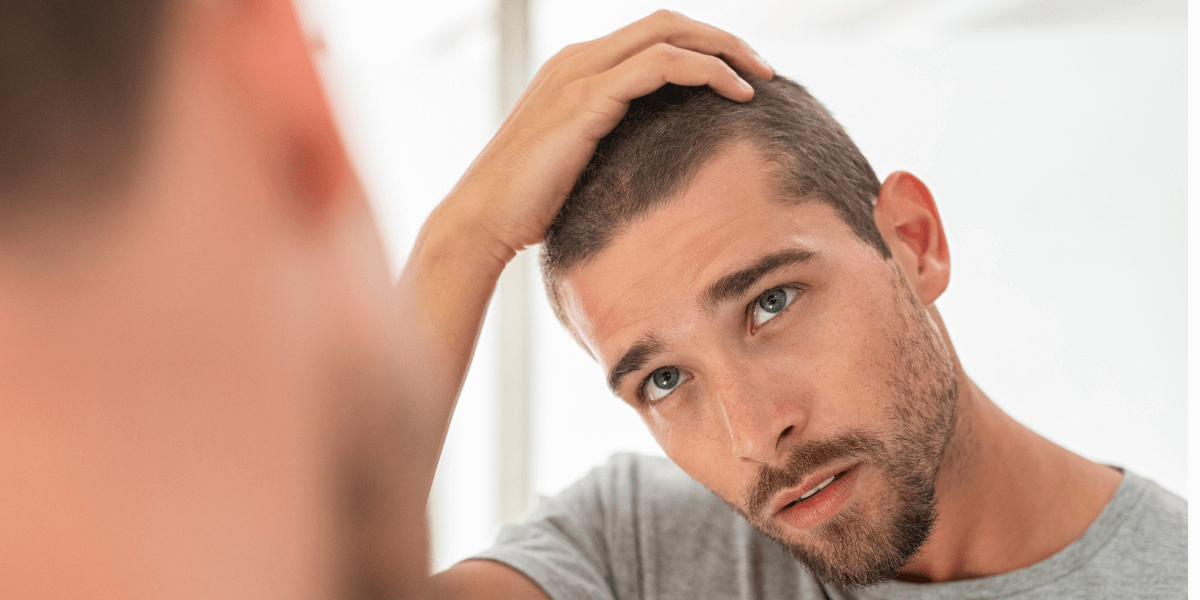Hair is an important aspect of who we are and how we present ourselves to the rest of the world. That’s why thinning hair is such a huge problem – it can be a very stressful topic for many women because there is no quick fix for growing more hair instantaneously.
Losing hair is an unwanted and unpleasant experience that, regrettably, most of us have to deal with as we get older. Thinning and dry hair is a sign of internal bodily changes. Some may consider hair loss a normal, unavoidable part of aging or a reaction to stress, but it is frequently linked to hormone imbalances and other issues.
Understanding the Hair Follicle’s Cycle
A hair follicle is often a tunnel-shaped structure in the skin’s outer layer. Your hair starts growing at the base of a hair follicle. A hair follicle goes through three phases during its lifespan. These three phases are as follows:
- Anagen – This is the hair development phase, and about 90% of hair follicles in your scalp are in it.
- Catagen – This is the hair’s transition phase, during which the hair ceases active growth.
- Telogen – This is the shedding phase of hair when it falls out of the hair follicle.
The Impact of Stress on Hair Loss
Stress is not just bad for you but also for your hair. When your stress levels increase, your body enters into a fight or flight state where only the essential functions that are unavoidable for your survival are taken care of. However, everything else, including your hair, gets neglected. Therefore, if you want healthy hair, take time to analyze your stress level and include stress-reduction techniques in your daily routine. Stress hormone molecules like cortisol can also damage your hair follicle
How Do Hormones Have an Impact on Hair Loss?
Hormones, especially sex hormones, play a major role in your hair health.
Pregnancy is known to increase the number of hair follicles in the anagen phase. This is due to the enhanced supply of progesterone and estradiol hormones in pregnancy. These hormones are particularly nurturing to hair, expands hair growth, and prevents hair shedding.
However, when your hormones re-equilibrate themselves at about three months postpartum, you will face massive hair shedding. The good news is that most women will recover from this state slowly, and their hair will return to normal soon.
Apart from pregnancy, you will have to face massive hair shedding when you enter menopause. This is due to the drastic decrease in progesterone and estradiol hormones. One thing to note is that hair loss due to menopause is irreversible, unlike postpartum hair loss.
Another common condition that can contribute to hair loss in females is polycystic ovary syndrome (PCOS). PCOS causes increased androgen levels, causing women to lose hair from their scalp, and it starts to grow in unwanted areas, e.g., their face, chest, and back.
Lastly, the thyroid hormone can also have a major impact on your hair. This hormone affects nearly every bodily activity. When the thyroid system becomes underactive (hypothyroidism), our metabolism slows, and less significant body functions receive less attention, leading to hair loss.
Nutrients Affecting Your Hair
Apart from various hormones, certain nutrients can also affect your hair growth. Some of these are described below.
- Iron – If hair loss is caused by a lack of iron in the body, treating anemia should help hair regrow. However, a ferritin test to determine your iron level is critical to get done because iron supplementation when iron levels are normal or high can result in iron overload and toxicity.
- Vitamin D – Vitamin D is a necessary nutrient for human immunity, bone health, and various other functions. In terms of hair, it aids in forming new hair follicles by beginning the anagen phase. This indicates that vitamin D is necessary for healthy hair. When the body does not get enough vitamin D, it can cause various symptoms, including hair loss.
- Vitamin B12 – Healthy blood flow is required to keep hair follicles active because the oxygen-rich red blood cells nourish your hair follicles. Vitamin B12, commonly known as cobalamin, supports healthy hair development by aiding in synthesizing these red blood cells.
When to Talk to Your Doctor
If you find that you are losing a lot of hair or that your scalp is itchy or inflamed, you should consult your doctor. If you are experiencing excessive hair loss that does not react to treatment, you can consider hair transplant or hair restoration therapy. New Jersey Hair Restoration Center offers among the best options in New Jersey that include FUE hair transplants, FUT hair transplants, PRP therapy, and more.


